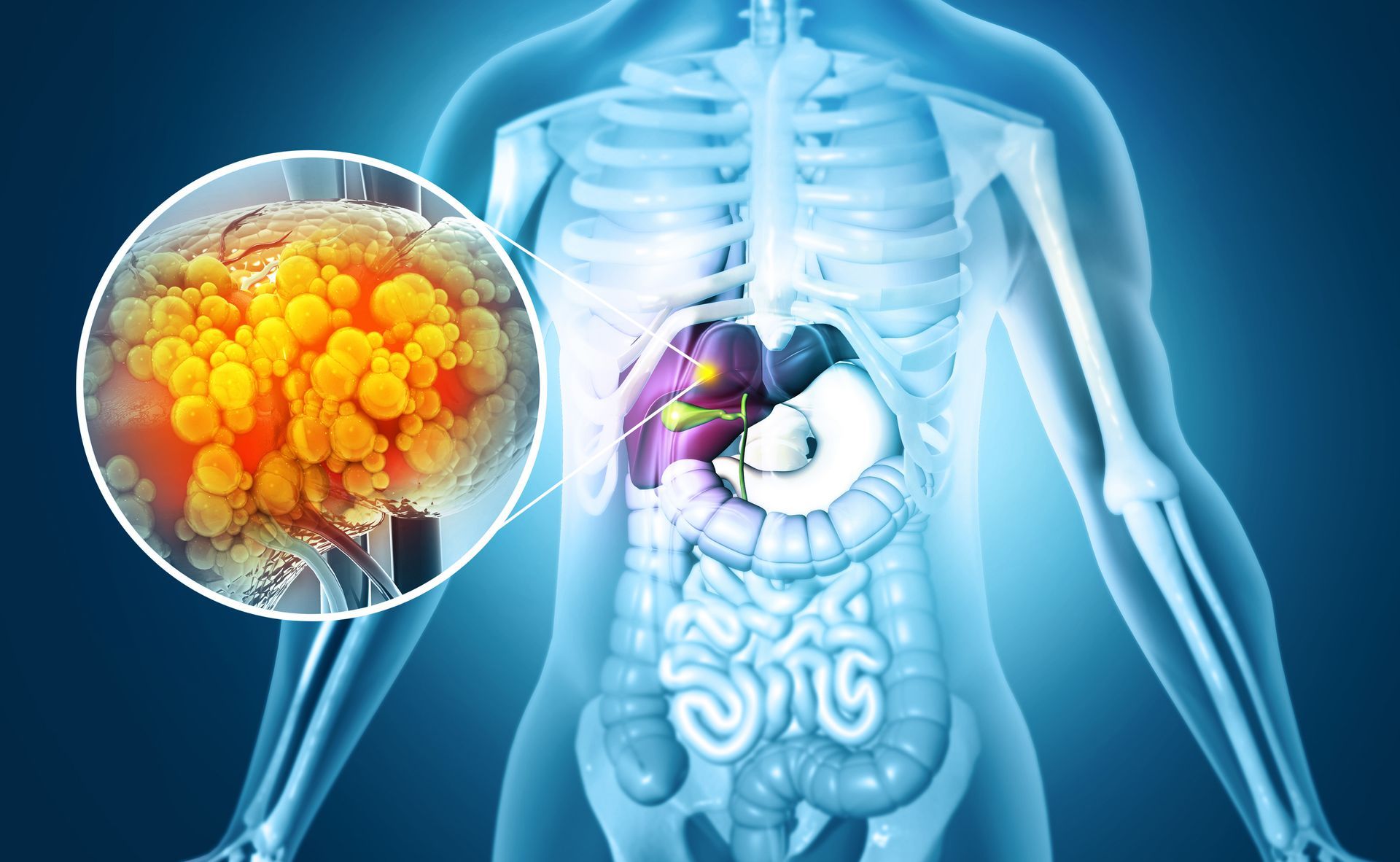Fatty Liver Causes, Signs, and Prevention
Your liver plays an important role in your body. The things that you eat and drink play a critical role in your liver’s health. Fatty liver disease is a condition that can drastically impact the health and function of your liver. But what is a fatty liver, what causes it, what are the symptoms, and how can it be treated? Let’s take a closer look at fatty liver disease.
What is Fatty Liver Disease?
A fatty liver is exactly what it sounds like. When your liver develops an excessive buildup of fat, you can be diagnosed with fatty liver disease. There are two types of fatty liver disease.
- Non-Alcohol Fatty Liver Disease (NAFLD): This is a liver with fat buildup, but there is no inflammation of the liver.
- Non-Alcohol Steatohepatitis (NASH): This is a liver with fat build up combined with inflammation of the liver.
NAFLD has the potential to develop into NASH. These conditions can lead to cirrhosis of the liver.
Causes of Fatty Liver Disease
There are several factors that can lead to the development of fatty liver disease. High cholesterol, diabetes, certain medications, alcohol abuse, and obesity are leading causes.
Symptoms of Fatty Liver Disease
Routine blood work that detects elevated liver enzymes is the most common way to identify NAFLD, as it typically doesn’t present any outward symptoms. CT scans, ultrasounds, and MRIs can also reveal this condition. Fibroscans can also be used to determine the stiffness of the liver. If you are suffering from NASH, you may experience subtle symptoms like right upper abdomen pain or fatigue.
How Can Fatty Liver Disease be Prevented?
Prevention is the ideal tactic for dealing with fatty liver disease. Here are a few ways to prevent the development of fatty liver disease.
- Increase Fiber Intake – Soluble fiber can help every facet of your digestive tract. Carrots, apples, oatmeal, and sunflower seeds are great options for this nutrient.
- Reduce Saturated Fat Consumption – Red meats and processed foods have a high level of saturated fats. Replacing these parts of your diet with plant-based proteins and poultry can help you on the way to healthier, liver-friendly diet.
- Exercise – Living an active lifestyle, even minimally, can lead to much healthier liver.
- Stay Hydrated – Consuming water on a regular, frequent basis can not only improve your digestive health, but the overall condition of your body.
If you have any of the mild symptoms of this condition, or have recently had blood work that shows the signs of one of the two types of fatty liver disease, you should consult your doctor. The expert staff at Digestive Diseases Center is here to help with all of your digestive health issues.
CONTACT
850-763-5409
ADDRESSES
4 LOCATIONS
204 E 19th Street, B, Panama City
12216 Panama City Beach Pkwy, D, Panama City Beach
4295 3rd Ave, Marianna
101 Good Morning St., 109B, Port St. Joe
Subscribe to our newsletter:
subscribe to our newsletter
We will get back to you as soon as possible.
Please try again later.




